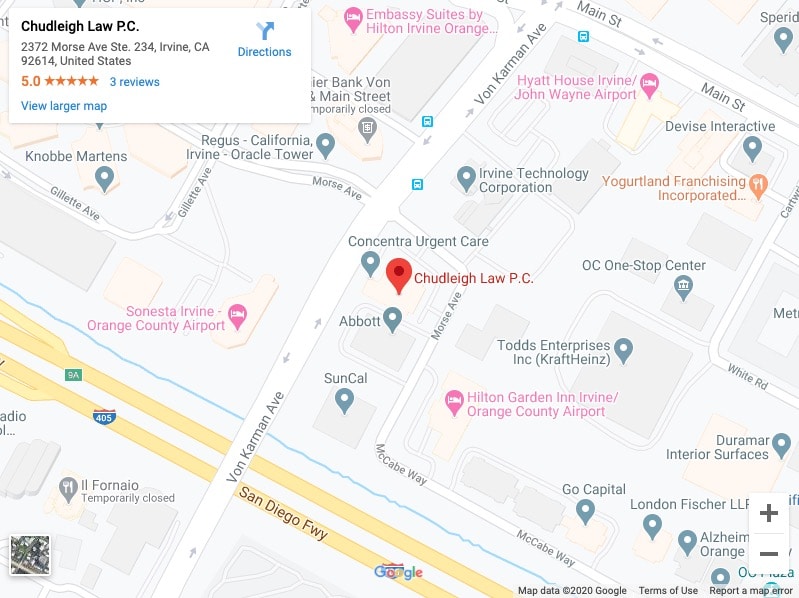Experience. Integrity. Results.

Experience. Integrity. Results.

An experienced traumatic brain injury attorney in Orange County possesses special skills – skills that are supported by both legal expertise and compassion. If you or a loved one has suffered a traumatic brain injury and feel it was the result of negligence, it’s important to work with a legal advocate who can help you receive the compensation you need to pay for past, current, and future medical expenses as well as lost earnings and pain and emotional suffering.
What Is Traumatic Brain Injury?
Traumatic brain injury, or TBI, is a term that describes a complex medical injury that features a broad scope of disabilities and symptoms. This type of injury can produce devastating effects on a victim’s family.
While the current number of people with TBI is hard to assess precisely, it is larger than what most people realize. According the Centers for Disease Control and Prevention, about 1.5 million people in the US suffer from TBI-related conditions each year. Out of that number, around 50,000 fatalities occur. Another 85,000 people suffer from disabilities. Around 5.3 million people in the US have become disabled as the result of a TBI.
Mild TBI
The most prevalent TBI suffered is a mild TBI, also referred to as follows:
- Concussion
- Minor head trauma
- Minor TBI
- Minor head injury
- Minor brain injury
A mild TBI typically results from a forceful movement of the head, which causes disorientation, memory loss, or confusion. Individuals may also experience memory loss for as long as 30 minutes. Any post injury symptoms are frequently called post concussive syndrome.
Common Symptoms
A person with mild TBI may experience the following symptoms:
- Tiredness
- Headache
- Vision problems
- Memory loss
- Poor concentration
- Sleep issues
- Dizziness
- Depressive thoughts
- Seizures
Other Symptoms
Other symptoms may include the following:
- Nausea
- Sensitivity to lights and sounds
- Changes in mood
- Loss of smell
- Confused thinking
- Problems with comprehension
Any of the above symptoms may not be noticed at the time of an accident. They may appear later, after several days or weeks. Symptoms may be overlooked or missed by the victim, the doctor, or family. Frustration, while doing daily tasks may cause a person to ultimately seek a doctor’s opinion.
Severe TBI
Severe TBI can greatly impact a patient’s life. Despite advances in treatments, the long-term effects of a severe TBI greatly change how a person lives. Some of the motor deficits caused by a severe TBI include the following:
- Paralysis
- Muscle stiffness (spasticity) or uncontrolled muscle movements
- Problems walking, swallowing, or talking
- Visual disturbances
- Loss of fine motor skills – such as tying a tie or buttoning a blouse or shirt
- Inability to recognize an item when touching it
- Problems with remembering
- Problems with socializing
In turn, a person with severe TBI may experience the following:
- Problems with maintaining professional or personal relationships
- Difficulties in cultivating friendships
- Problems with taking part in leisure activities
- An inability to attend school or work
Indeed a severe TBI can lead to a life that is far different than what the patient experienced before his or her accident. Patients may experience speech and language problems along with sensory difficulties.
Acquired Brain Injury
An acquired brain injury (ABI) is an injury that affects the brain but is not congenital, hereditary, or degenerative. It also is not caused by trauma during birth. The injury occurs as the result of a change in the brain’s neuronal activity, thereby impacting metabolic activity or the functions of the brain’s nerve cells.
Unlike a TBI, an acquired brain injury (ABI) does not result from trauma to the head. The injury results from internal factors, such as exposure to toxins, pressure from a tumor, or a lack of oxygen.
Types of ABI Injuries
1. Chemical-Toxic Injury
- This type of ABI is also called a metabolic disorder.
- Harmful chemical damage to the neurons results in the injury.
- Chemicals that lead to this type of ABI include solvents, insecticides, lead poisoning, or carbon monoxide poisoning.
2. Hypoxia or a Lack of Oxygen
- A lack of oxygen results in depleted blood flow, which can lead to an irreversible brain injury as the result of hypoxia (reduced oxygen) or anoxia (no oxygen).
- This ABI may result from respiratory failure, drops in blood pressure, or a heart attack.
- Symptoms may reveal themselves in memory difficulties or severe cognitive deficits.
3. Tumors
- Cancer tumors growing over or on the brain can lead to an ABI.
- Damage may result from the pressure produced by a large tumor.
- A surgical procedure to remove the tumor may lead to further brain damage.
4. Stroke
- If blood circulation becomes blocked during a stroke, known as a cerebral vascular accident, cell death will result.
- A hematoma or hemorrhage (bleeding over or inside the brain) can trigger this ABI because of a tear in a vein or artery.
5. Infection
- Viruses also cause infections that can be life-threatening, such as those that produce encephalitis or meningitis.
How Chudleigh Law Can Help
We are a personal injury law firm serving Orange County. With years of experience, we understand the intricacies of personal injury law and how to fight for your rights in the case of a TBI.
You can count on us to thoroughly investigate the circumstances of your case, and do so in a timely manner. We will do all that we can to prove that your TBI was the result of negligence – showing that the injuries resulted from the inaction or action of another party. Plus, you do not owe us anything unless we win your case. That way, you can be assured that we will do everything possible to help you get the compensation you need to pay for your medical care and relieve you of certain financial obligations or future debts.
Common Causes of TBI
While the causes of TBI are diverse, the top main causes include the following:
- Vehicle accidents
- Firearm errors
- Falls
When patients suffer firearm injuries, they often result in death. About 9 out of 10 individuals succumb to these injuries. Elderly people and young adults are at the greatest risk for TBI, either because of recklessness or a lack of mobility. Along with TBI, recipients may suffer from spinal cord injuries from auto wrecks, firearm discharges, or falls.
The Effects
The mechanisms of a brain injury are varied, depending on the reason for the condition. Below are the most common brain injuries and their primary causes.
1. Open Head Wound
- Often results from firearm errors
- Damage largely affects the vision
- Normally penetrates the skull
- Can be fatal
2. Closed Head Injury
- Usually results from an auto crash or slip-and-fall
- Leads to visual damage
- Injuries tend to be diffuse (or wide-ranging)
- The injury does not penetrate the skull
3. Deceleration Injury (or a Diffuse Axonal Injury)
While the brain is gelatin-like in consistency, the skull is hard and usually impenetrable. When the skull meets up with a stationary object (called deceleration), it causes the brain to move within the skull. Because they are soft and varied in weight, the brain’s parts move at varying speeds. Differential movements of the skull and brain, when the head is hit, result in a direct injury to the brain – one that may cause the brain to swell or bruise.
In addition, diffuse axonal shearing may result. If the brain is hit hard enough, the axons in the brain may tear (known as axonal shearing), and neurons die. When a brain is severely injured, massive axonal shearing or neuron death results.
Preventative Measures
To prevent the causes that lead to TBI, it pays to practice prevention. The following types of preventative measures can help you from suffering TBI symptoms that can drastically change your life.
Basic Prevention
Some of the basic preventative methods employed include the following:
- Always wear a seat belt when driving
- Use a child safety booster or seat
- Never drink or take drugs and drive
- Always wear a helmet when riding a motorcycle, scooter, bicycle, snowmobile, or similar vehicle
- Wear a helmet when playing contact sports
- Wear a helmet when snowboarding, skating, skiing, or skateboarding
- Wear a helmet when horseback riding
Fall Prevention
To prevent any causes of TBI produced by falling, make sure you do the following:
- Use the rails along stairways
- Make sure you walk in well-lit areas
- Install bars on windows to keep children safe
- Sit on stabilized and secure stools
- Never place obstacles in the paths where you walk
Firearm Safety
To avoid TBI causes, practice the following gun safety measures:
- Keep firearms locked inside a cabinet
- Unload firearms before storing them
- Store the ammo for the guns in a separate space
Common Brain Injury Symptoms
Whether the symptoms are immediate or appear after an accident, brain injury symptoms usually include the following:
Cognitive Symptoms
Patients may experience amnesia, an inability to speak or understand language, or become easily confused. They also have difficulty concentrating or thinking and understanding. Some people find it difficult to recognize common items.
Behavioral Symptoms
Abnormal laughing or crying may result from a mild to severe TBI, as can irritability or a persistent repetition of an action or words.
Physical Symptoms
Some people may black out or experience fatigue, faintness, or dizziness.
Mood Disorders
Patients often express anxiety, frustration, or anger.
Eye Symptoms
Pupils may become dilated or the pupils may look asymmetrical.
Gastrointestinal Symptoms
Patients often vomit or experience nausea after getting struck on the head.
Muscular Symptoms
Patients frequently complain of muscle stiffness.
Sensory Symptoms
Sensitivity to light or sound is another difficulty.
Speech
Slurred speech often results from a TBI.
Other Common Symptoms
Other symptoms related to a TBI include the following:
- Recurring headaches
- Bleeding
- Blurred vision
- Bone fractures
- Depression
- Loss of smell
- Bruises
- Ringing in the ears
- Nerve injuries
The above symptoms are indeed comprehensive. That is why you need both medical and legal support if you suffer from a brain injury.
What to Do Immediately after a Head Injury
If you or someone you know receives a blow to the head, call 911 right away. Pay attention if you experience or observe the following symptoms:
- Extreme tiredness or sleepiness
- Abnormal behavior
- Headache or a stiff neck
- Pupils of unequal sizes
- An inability to move a leg or arm
- A loss of consciousness, even if brief
- Vomiting
Check the Airway
If you are caring for someone with a head injury, check his or her airway. If the breathing and heart rate are normal, but the individual is unconscious, stabilize the head and neck. Place your hand on either side of the person’s head. Keep the head in line with the spinal column to prevent any kind of movement. Wait for medical help to arrive.
Stop the Bleeding
If the person is bleeding, stop the blood flow by gently yet firmly pressing a cloth over the wound. If the injury is severe, be careful about moving the head. If the cloth becomes blood-soaked, place another cloth over it. Do not remove the first cloth.
Should you suspect a skull fracture, do not directly apply pressure to a bleeding wound or remove any residue. Instead, cover the laceration with a gauze dressing. Apply ice to any swelling.
What You Should Never Do
Never do the following –
- Wash a deep or bleeding head wound
- Remove an object projecting from a head wound
- Move the victim, unless it is necessary
- Shake the person, especially if they appear dazed
- Pick up a child who has fallen whose head appears injured
People suffering from head wounds should also refrain from drinking alcohol 48 hours after the injury.
Pursuing a Lawsuit
If you feel that your TBI or the TBI of a loved one has been caused by the negligence of another person, you need to seek financial relief. Talk to a brain injury attorney about your case and why you believe you need legal representation. If you can show that the other person’s behavior led to your injury or the injury of a loved one, you may have a viable case. You only have two years from the date of the accident to file a personal TBI claim. Therefore, time is of the essence. Contact one of our attorneys and we will meet with you at a convenient time to discuss your case.
How Much Will It Cost to Hire an Orange County TBI Attorney?
You never pay anything upfront to pursue a traumatic brain injury lawsuit. Instead, you only pay for legal services when the case has been settled. Attorneys who charge for this type of service usually ask for a contingency fee that is around 33% of the entire settlement. If the attorney does not win your case, you do not owe him or her anything.
Frequently Asked Questions (FAQs)
1. What are the most common causes of TBIs?
Traumatic brain injuries often result from the following:
- Falls
- Motor vehicle crashes
- Assaults ( gunshot wounds or shaken baby syndrome)
To a lesser extent, TBI injuries may be caused by the following:
- Blast injuries during military training or during combat
- Sporting activities
2. Who is at the highest risk for a TBI?
- Men outnumber women when it comes to sustaining brain injuries – about 1.5 times more men suffer from these injuries.
- Military training or combat increases the chance of a TBI.
3. What are the signs of a concussion, or mild TBI?
- Headache
- Dizziness
- Tiredness
- Problems with concentration
- Sleep difficulties
- Irritability
- Balancing problems
- Ringing in the ears
- Blurred vision
4. How is a TBI categorized as mild, moderate, or severe?
A person who loses consciousness for up to 30 minutes is considered to be suffering from a mild TBI while a person who loses consciousness from 30 minutes to 24 hours has a moderate case of TBI. Anyone with severe TBI may experience memory loss or post-traumatic amnesia (PTA) for as long as a week or more. The Glasgow Coma Scale is used by healthcare practitioners to determine the severity of a TBI.
Give Us a Call to Schedule a Free, No-obligation Consultation
Now is the time to find out how you can receive help for your TBI injuries. Contact us today for further information and details.
LEGAL AWARDS







Free Consultation
Free Consultation. No Pressure. Talk to an attorney today.
Office Locations
CHUDLEIGH LAW P.C.
410 Broadway St # 170
Laguna Beach, CA 92651
Telephone: (949) 504-5000
E-mail: info@ChudleighLaw.com
CHUDLEIGH LAW P.C.
2372 Morse Ave., Ste. 234
Irvine, CA 92614
Telephone: (949) 504-5000
E-mail: info@ChudleighLaw.com



